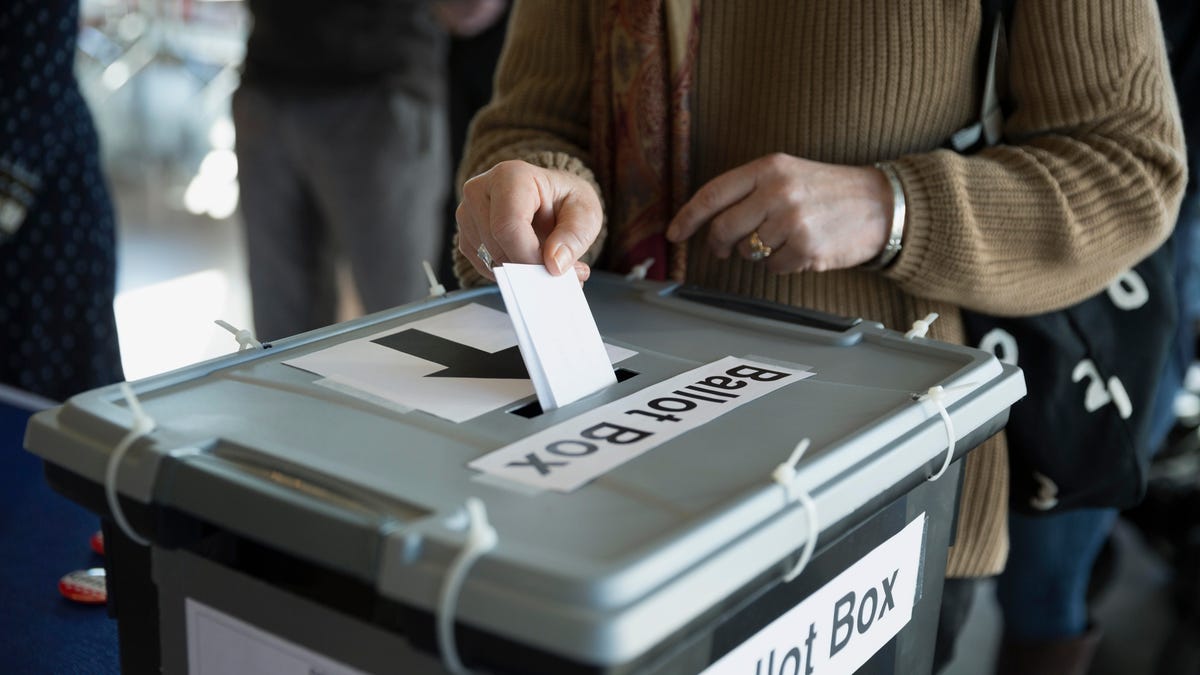Internet privacy group sues Trump election commission
The request for voter information violates voters' constitutional right to privacy, an internet watchdog group says.

President Donald Trump has claimed widespread voter fraud occurred during the 2016 presidential election.
An online privacy watchdog is suing the Trump administration's commission investigating alleged election fraud, saying the information requests violates voters' rights.
The Electronic Privacy Information Center, a nonprofit research organization, filed for a temporary restraining order (PDF) on Monday to block the Presidential Advisory Commission on Election Integrity from gathering voter records from state election officials. The commission has requested election officials provide voters' birth date, party affiliation, partial Social Security numbers, voter history, felony convictions and military service status.
"The publication of voters' personal information violates the constitutional right to informational privacy," EPIC's lawsuit says. "The Supreme Court has long recognized that individuals have a constitutionally protected interest in 'avoiding disclosure of personal matters.'"
The commission was created through an executive order by President Donald Trump in May to investigate the president's allegations of voter fraud in the 2016 election. A growing number of states are refusing or partially refusing to comply with the commission's requests.
The lawsuit says the commission has already committed two security blunders, including directing state election officials to send voter records to an insecure website. It also says the president's panel has said it would publish the last four digits of millions of voters' Social Security numbers, raising concerns of increased financial fraud and identity theft.
The White House didn't immediately respond to a request for comment.
CNET Magazine: Check out a sample of the stories in CNET's newsstand edition.
Logging Out: Welcome to the crossroads of online life and the afterlife.

